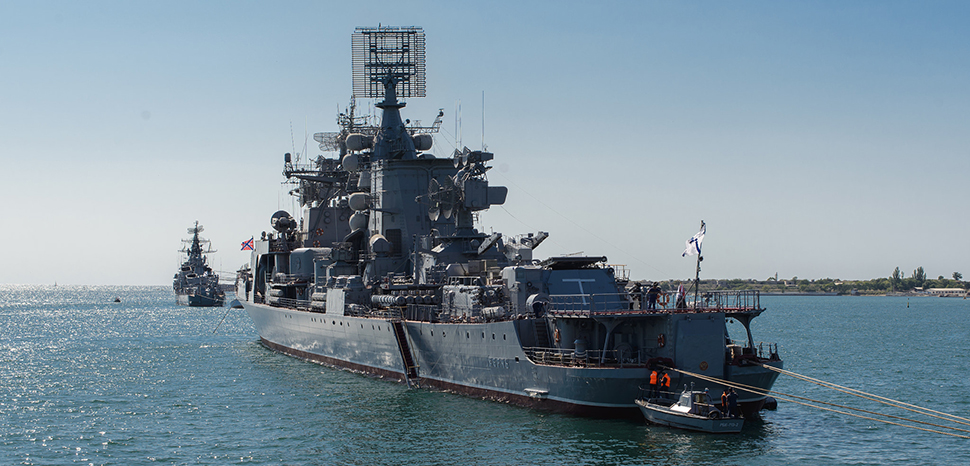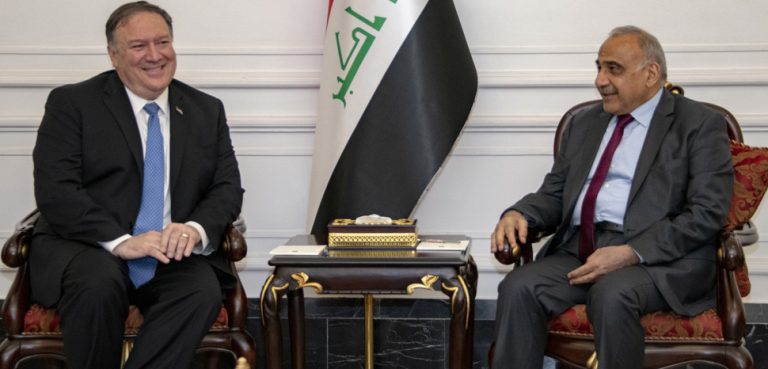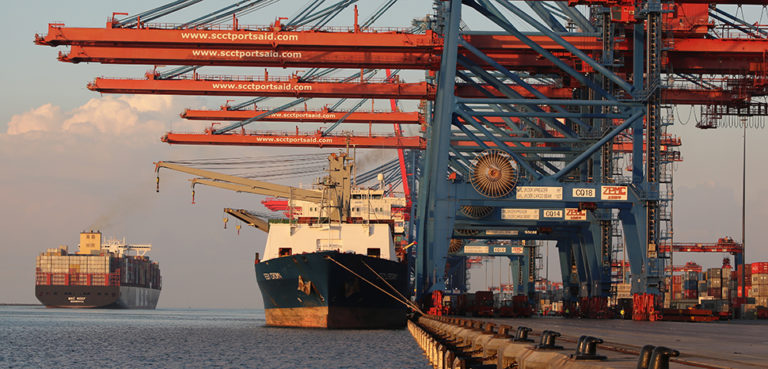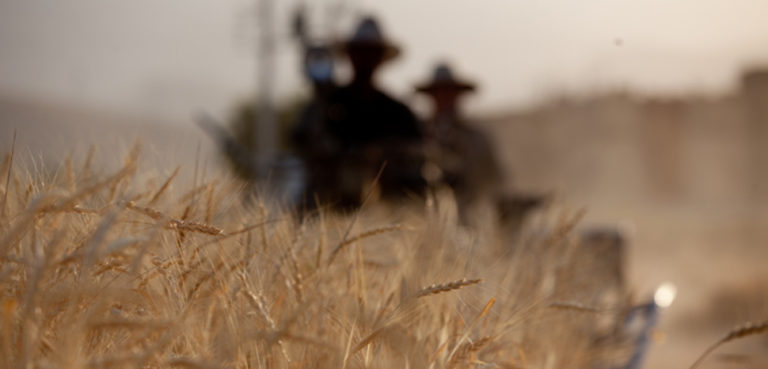The ongoing Russian invasion of Ukraine has consequences that reach far beyond Eastern Europe. Aside from the looming gas crisis and inflation, many analysts and governments now acknowledge a growing wheat crisis, as Ukraine is currently unable to export wheat to the Near East, a destination that constitutes a good portion of grain exports. What is now becoming evident is that Russia may be purposely withholding wheat to apply a scorched earth policy upon Ukraine, creating a manufactured famine for sanctions relief.
Ever since the modern foundations of Ukraine, the country has been responsible for major grain shipments throughout the world, particularly in the Middle East and Africa. The Soviet Union relied on the Ukrainian wheat harvest and the grain crop has always been critical to Kyiv. As the Russian military continue to push into the east of Ukraine, questions and concerns have arisen surrounding growing wheat prices.
Both Ukraine and Russia are already responsible for a quarter of the world’s grain and the war only amplifies a food shipment crisis. For example, Tunisia is already feeling the brunt of the crisis. As of today, bread prices are hovering at a 14-year high; and with food shortfalls, there is the potential for a squeeze on government spending and subsidies, which can trigger unrest in a country that is already going through a political turmoil.
Yemen, the Middle East’s most malnourished country with an extremely brutal Saudi-led air campaign and blockade supported by the U.S., is already embroiled in one of the world’s worst humanitarian catastrophes. Famine is one of the main causes of death and the country heavily relies on grain from both Kyiv and Moscow. Over 17 million Yemenis have been already food deprived due to the blockade and lack of emergency aid devastating large areas of the country. An already war-weary and highly malnourished population cannot sustain another catastrophe from a prolonged war in Eastern Europe. Though a ceasefire has recently been reached between warring factions on the Arabian Peninsula, protracted war in Ukraine could exacerbate famine conditions locally and threaten this delicate de-escalation.
Lebanon, which is currently going through one of the biggest governmental and financial collapses in modern human history, is the most at-risk nation with regard to grain shipments. According to FT, 80% of wheat imports coming into Lebanon are from Ukraine. As the Lebanese lira continues to rapidly lose its value and political gridlock and corruption remain an obstacle, the average citizen could be faced with a cataclysmic food shortage of the like not seen since the civil war. It also does not help that Lebanon sits next to a nation whose regime has given Russia its unconditional support to wage war in Ukraine.
While Assad has generally been assured by Russian support, there are signs that his gamble on Ukraine may backfire. A looming Turkish offensive in northern Syria, along with slow reconstruction and demographic changes still haunt Assad, no matter how much his government has tried to normalize the situation. Syrian refugees refuse to return, and the economy still has not recovered, making the government’s willingness to involve itself in a war thousands of kilometers away seem a questionable venture.
As the Ukraine war continues, there is mounting suspicion that this is all by design, that Russia may be deliberately inflating the wheat and grain crisis, most likely to secure sanction relief by holding the world hostage. In the city of Chernihiv, Russian forces took over a cattle farm and purposely executed the livestock, according to residents who shared photos of the horrors. As Russia refocuses and repositions its forces for future operations, the goal looks to be seizing further territory in eastern Ukraine – the ‘breadbasket’ region. In doing this, Russia is attempting to secure leverage over not only Zelensky, but the world at large. Putin and his inner circle realize the callous mistakes they made in gambling on the theory that Ukraine would surrender en masse in the first several days, and that the international community would not mobilize together in support of Kyiv. Putin’s risk-taking on Ukraine stemmed from the lack of international response to past wars in Syria, Georgia, and Chechnya for example. Now that Russia has become the most sanctioned nation on earth, they look to seize as many Ukrainian resources as possible so as to stabilize their long-term economic outlook.
Upwards of three hundred civilian trade ships have already been purposely blocked by the Russian Navy in the Black Sea, cutting off a vital global trade route. Russian forces have also had their fair share of shooting at civilian ships since the invasion started. On February 25th, the Russian navy targeted and fired at a Moldovan ship, and on March 2nd, the Russian Navy launched a missile at Bangladeshi ship, killing one crew member. Similarly, in early April, an Egyptian ship full of grain from the port of Odessa was repeatedly denied passage. Though Moscow denies the allegations, the evidence seems to suggest that Russia is willing to worsen the wheat crisis for sanction relief, even at a cost of starvation around the world. In the words of RT chief and close Putin ally Margarita Simonyan during this year’s St. Petersburg International Economic Forum: “All our hope is in the famine.”
Finally, it should also be noted that wheat was a major factor at the beginning of the Arab Spring. With a new global inflation crisis post-pandemic and mounting constitutional emergencies across the region, the Ukraine war could unleash even more disastrous consequences for the region in the years to come.
The views expressed in this article belong to the authors alone and do not necessarily reflect those of Geopoliticalmonitor.com




